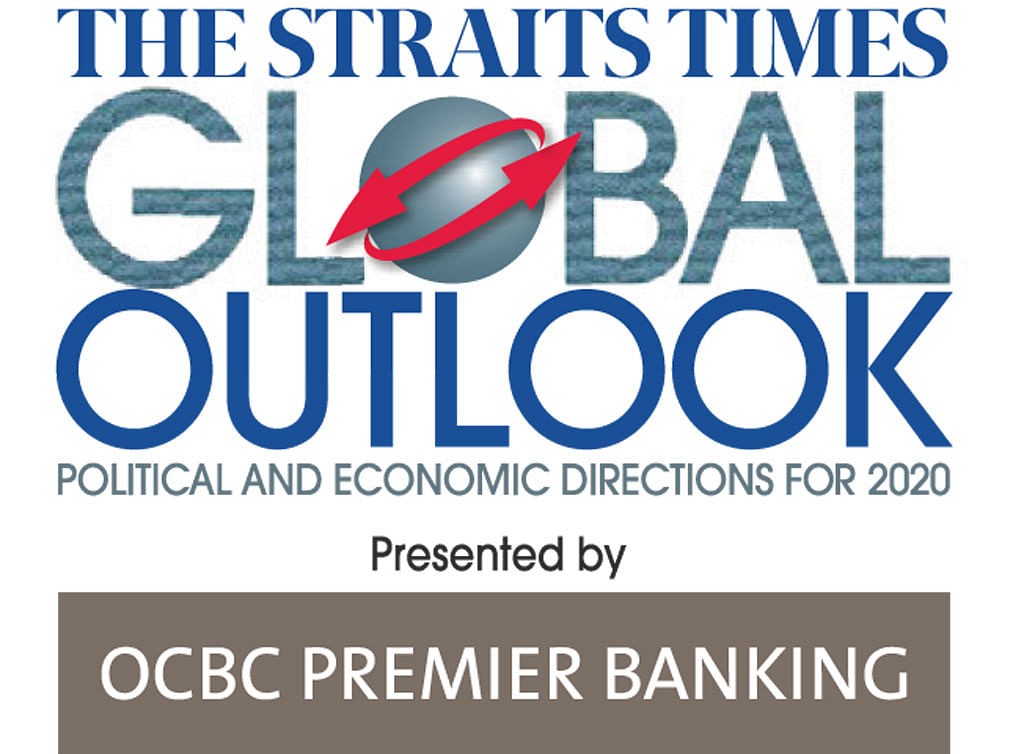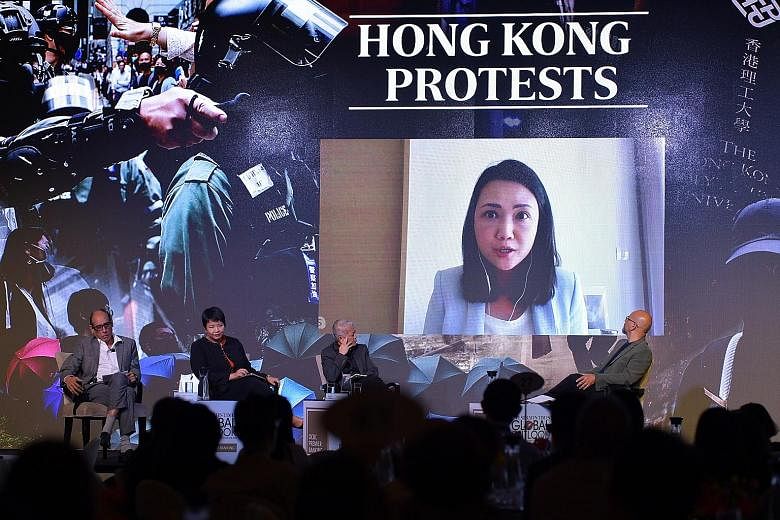A "decoupling" of China and the United States is neither likely nor feasible, said experts at The Straits Times Global Outlook Forum yesterday, given that both economic heavyweights still have many reasons to work together.
"Decoupling is not in anybody's interest," said Mr Benjamin Kang Lim, The Straits Times' global affairs correspondent, who was speaking from Beijing via video conference.
"The two countries have to work together on a lot of other issues including nuclear proliferation, climate change, terrorism, money laundering, global pandemics and many other threats to global stability."
The experts also warned that it is too late to block Beijing's technological advance, which the US appears to be attempting to do.
Mr Vikram Khanna, associate editor of The Straits Times, said: "If the US is, for example, trying to stop China from importing chips, China is going to make them on its own. It's also too late to reverse China's technological leadership in certain industries."
But it is not too late to get China to undergo certain reforms, in areas such as intellectual property protection, he added.
The Straits Times Global Outlook Forum, held at the Ritz-Carlton Millenia hotel yesterday, is an annual event focusing on the economic and political situation around the world.
Discussion topics at this year's edition included the trade war, as well as the situation in Hong Kong and its implications for the region. OCBC Premier Banking was presenting sponsor for the event. Audience members included academics, businessmen and readers of The Straits Times.
Economist Selena Ling, head of treasury research and strategy at OCBC Bank, pointed out that a Phase 1 trade deal between the two countries is a low-hanging fruit.
For such a deal to be struck, China must agree to buy more agricultural goods from the US, which must, in turn, refrain from imposing additional tariffs or hiking existing ones, she said.
"I think that's doable. But beyond that, that's a real challenge," Ms Ling added. "When you get into all this ambiguous stuff like human rights violations, who is right and who is wrong, that is going to be really difficult to sort out."
The Straits Times' US bureau chief Nirmal Ghosh, who moderated the session, also asked panellists how important it is that the Asean countries not be forced to pick sides in the conflict between both economic heavyweights.
Responding, Professor Danny Quah, dean of the Lee Kuan Yew School of Public Policy at the National University of Singapore, said: "The question we really need to ask is: Is it possible to imagine a level playing field where we don't make that choice between the US and China?"
For most of the century, it has been the United States that has advocated multilateralism. Now, it has pulled back, he said.
Prof Quah stressed that Asean must continue to focus on multilateralism that works best for it. "The rhetoric on multilateralism is no longer the monopolistic preserve of the US."
On the topic of Hong Kong, panellists were asked about the likelihood of the city being supplanted by either Shenzhen or Shanghai as a global financial centre.
Hong Kong's great strengths are its rule of law, independent judiciary, convertible currency and institutional framework that allows financial transactions to be trusted by multinational firms, Mr Khanna said.
"All of that is not about to happen in China in a hurry," he added.
Ms Claire Huang, who is The Straits Times' Hong Kong correspondent, pointed out that Hong Kongers are particularly wary of the Chinese judicial system because they feel it is "opaque... a moving target".
Hong Kong - unlike its two rivals on the mainland - has very free capital flows, added Ms Huang, who was also speaking via video conference, from Hong Kong. "To replicate the kind of access that Hong Kong has would be very difficult," she said.
But even so, added Prof Quah, the world may not have a choice if the situation in Hong Kong continues to unfold in the same vein.

"Obviously, Shanghai and Shenzhen don't have the deep experience that Hong Kong has been able to harvest over these decades," he said. "But if Hong Kong continues down a path where it continues to show, on all sides, a continuing disrespect for law... there might be no choice."
The experts agreed that it would be "devastating" for Hong Kong if the city's special status under US law - where it enjoys easier travel and more trade benefits - is removed such that it becomes "just another Chinese city", but pointed out that Hong Kong is just one of many challenges faced by Chinese President Xi Jinping.
"It would be quite catastrophic for the Hong Kong economy," Ms Ling said. "But for China and the world, not so much."
Deputy Prime Minister and Finance Minister Heng Swee Keat also addressed the audience during the forum. In his speech, he stressed the importance of Singapore continuing to build bridges at a time when the world is building walls.


